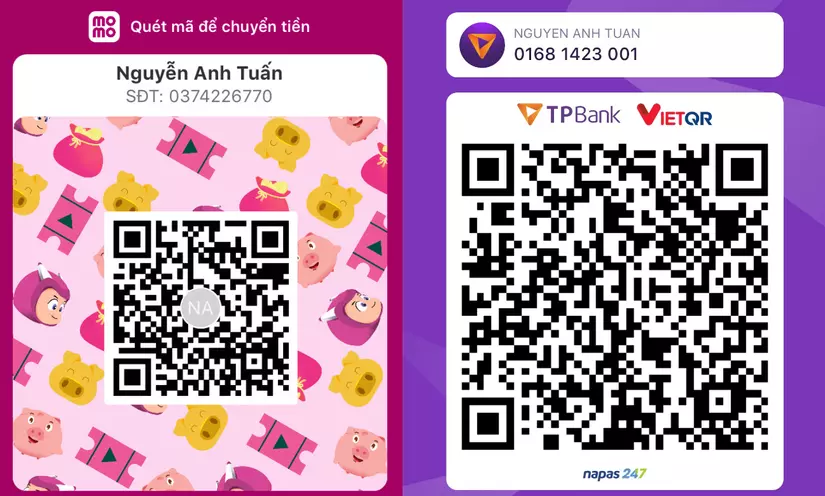🔐Protecting against Cross-Site Scripting (XSS) Attacks in Node.js
Bài đăng này đã không được cập nhật trong 2 năm
Introduction
Cross-Site Scripting (XSS) is a type of security vulnerability that allows attackers to inject malicious scripts into web pages viewed by other users. This can lead to a range of security issues, such as stealing user data or performing unauthorized actions on behalf of the user. In this article, we will discuss how to protect your Node.js and Express.js applications from XSS attacks with simple and effective techniques.
Understanding XSS Attacks
Before diving into the solutions, let's briefly explore how XSS attacks work. There are three main types of XSS attacks:
- Stored XSS: The attacker injects a malicious script into the website's database, which is then executed when users view the affected page.
- Reflected XSS: The attacker sends a URL containing the malicious script to the victim, who clicks the link and unknowingly executes the script on their browser.
- DOM-based XSS: The attacker manipulates the Document Object Model (DOM) of a web page, causing the browser to execute the malicious script.
Securing Input Validation
Validate and Sanitize User Input
The first line of defense against XSS attacks is to validate and sanitize user input. This involves checking the input data for malicious content and removing or encoding any unsafe characters.
const sanitize = require('sanitize-html');
function validateAndSanitizeInput(input) {
// Perform input validation, e.g. checking the input length, format, etc.
if (typeof input !== 'string' || input.length > 100) {
throw new Error('Invalid input');
}
// Sanitize the input to remove unsafe characters and HTML tags
const sanitizedInput = sanitize(input, {
allowedTags: [], // Disallow all HTML tags
allowedAttributes: {}, // Disallow all attributes
});
return sanitizedInput;
}
By using the sanitize-html library, you can easily sanitize user input to prevent the execution of malicious scripts. Remember to validate the input data according to your application's requirements, such as length or format constraints.
Use Prepared Statements for Database Queries
To protect your application from stored XSS attacks, always use prepared statements when querying the database. This helps prevent SQL injection attacks and ensures that user input is properly escaped. Here's an example using the mysql library in Node.js:
const mysql = require('mysql');
const connection = mysql.createConnection({ /* Your connection config */ });
const userInput = "'; DROP TABLE users; --";
const sanitizedInput = validateAndSanitizeInput(userInput);
const sql = 'SELECT * FROM users WHERE username = ?';
connection.query(sql, [sanitizedInput], (error, results, fields) => {
if (error) {
console.error('Error querying the database:', error);
} else {
console.log('Results:', results);
}
});
By using prepared statements with placeholders (?), you ensure that the user input is escaped and treated as a value, not as part of the SQL query.
Securing Output Encoding
Encode Data Before Displaying in HTML
When displaying user-generated content in your web application, always encode the data to prevent the browser from interpreting it as HTML or JavaScript code. The escape-html library can be used to achieve this:
const escape = require('escape-html');
function displayUserContent(content) {
const safeContent = escape(content);
// Insert safeContent into your HTML template, e.g. using a templating engine
}
This will convert characters like <, >, &, ', and " into their HTML entities, making them safe to display in your application.
Set Content Security Policy (CSP) Headers
Content Security Policy (CSP) is a security feature that helps prevent XSS attacks by restricting the sources of content that can be loaded by a web page. By setting the CSP headers in your Express.js application, you can control which scripts, styles, images, and other resources can be loaded.
const express = require('express');
const app = express();
app.use((req, res, next) => {
res.setHeader(
'Content-Security-Policy',
"default-src 'self'; img-src 'self'; style-src 'self' 'unsafe-inline'; script-src 'self' 'unsafe-inline';"
);
next();
});
This example sets a strict CSP that only allows resources from the same origin ('self') to be loaded. You can adjust the policy according to your application's needs, but keep in mind that a more restrictive policy provides better security.
Using Secure Templating Engines
Templating engines help you generate HTML content dynamically by combining data with HTML templates. Some templating engines, such as EJS and Pug, have built-in protection against XSS attacks.
EJS
EJS is a popular templating engine that automatically escapes output by default. To use EJS with Express.js, you can install the ejs package and configure it as your view engine:
const express = require('express');
const app = express();
app.set('view engine', 'ejs');
Then, when rendering an EJS template, any variables included using the<%= %> syntax will be automatically escaped:
<!-- views/user.ejs -->
<h1><%= user.name %></h1>
Pug
Pug is another popular templating engine with built-in XSS protection. To use Pug with Express.js, install the pug package and set it as your view engine:
const express = require('express');
const app = express();
app.set('view engine', 'pug');
In Pug templates, any variables included using the #{} syntax will be automatically escaped:
//- views/user.pug
h1 #{user.name}
Conclusion
Protecting your Node.js and Express.js applications from XSS attacks is crucial to ensuring the security of your users' data. By following the best practices discussed in this article, such as validating and sanitizing user input, encoding output data, setting CSP headers, and using secure templating engines, you can greatly reduce the risk of XSS vulnerabilities in your applications. Always stay informed about the latest security threats and best practices to keep your application safe and secure.
Mình hy vọng bạn thích bài viết này và học thêm được điều gì đó mới.
Donate mình một ly cafe hoặc 1 cây bút bi để mình có thêm động lực cho ra nhiều bài viết hay và chất lượng hơn trong tương lai nhé. À mà nếu bạn có bất kỳ câu hỏi nào thì đừng ngại comment hoặc liên hệ mình qua: Zalo - 0374226770 hoặc Facebook. Mình xin cảm ơn.
Momo: NGUYỄN ANH TUẤN - 0374226770
TPBank: NGUYỄN ANH TUẤN - 0374226770 (hoặc 01681423001)
All rights reserved
